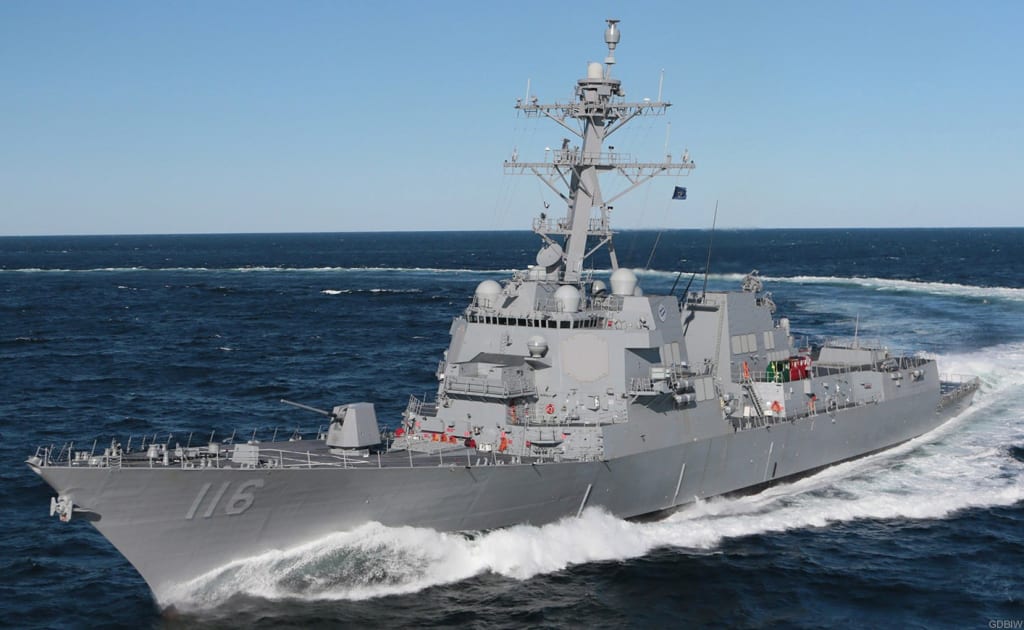
In a recent incident that unfolded in the Red Sea, a French frigate, the Languedoc, intercepted and destroyed two drones believed to be approaching from the Yemeni coast. The interception occurred at a distance of 110 kilometers from the Yemeni coast, heightening concerns in the region. The situation comes in the wake of escalating tensions, with Houthi rebels issuing threats to impede the passage of Israel-linked ships if humanitarian aid is not permitted into Gaza.
The intercept operation took place at 20:30 GMT and 22:30 GMT, showcasing the proactive stance of the French military in response to potential threats. The Red Sea, a crucial channel for global trade linked to the Suez Canal, has become a focal point for increased maritime attacks by Houthi rebels since the commencement of the Israeli war on Gaza on October 7.
The Houthis, a Yemeni rebel group, have explicitly stated that they do not welcome ships connected to Israel or those transporting goods to Israeli ports in the Red Sea. In a stern warning, the group urged all ships and companies to refrain from dealing with Israeli ports. This comes amid reports of a naval blockade, limiting the flow of essential supplies, including food and medicine, into the besieged Gaza Strip, which has suffered extensive damage from more than two months of Israeli bombing.
The maritime tensions in the Red Sea escalated further last week when Houthi rebels targeted two ships off the Yemeni coast, alleging them to be Israeli-owned. Additionally, last month, they seized the Galaxy Leader, a cargo vessel linked to Israel. The rebels have also carried out drone and missile strikes targeting Israel, prompting a response from the United States, which shot down three drones emerging from Yemen.
The international community, represented by the United Nations World Food Programme (WFP), has raised concerns about the humanitarian situation in Gaza. WFP reports indicate that 36 percent of Gaza households are now experiencing severe hunger, emphasizing the urgent need for humanitarian aid. Tragically, the conflict has resulted in the loss of at least 17,700 Palestinian lives, with a significant number being women and children. Thousands more are believed to be trapped under the rubble, highlighting the dire consequences of the prolonged hostilities.
In response to the escalating maritime tensions, Israel's national security adviser, Tzachi Hanegbi, expressed the country's refusal to accept what he termed as a "naval siege." Prime Minister Benjamin Netanyahu has reportedly sought assistance from U.S. President Joe Biden and European leaders to address the situation. Hanegbi warned that if the international community fails to take decisive action, Israel would take measures to remove the naval blockade, underlining the severity of the situation.
Amid the regional unrest, Iran-linked groups in the Middle East, including Hezbollah in Lebanon and armed factions in Syria and Iraq, have targeted U.S. installations. These actions reflect the broader geopolitical implications of the ongoing conflict, with various actors seeking to influence the situation.
The United States, in response to the heightened threats to maritime security, denounced the attacks as a direct threat. A U.S. destroyer shot down three drones emerging from Yemen while providing assistance to commercial ships in the Red Sea. The move underscores the international community's commitment to maintaining maritime stability in the face of growing challenges.
As the conflict continues unabated, Israel persists with its bombardment of Gaza, even after a UN Security Council resolution calling for a ceasefire was vetoed by the United States. The veto has drawn strong condemnation from humanitarian groups, emphasizing the urgent need for diplomatic solutions to bring an end to the devastating hostilities.
In conclusion, the recent incident in the Red Sea involving the French frigate underscores the escalating tensions in the region. The complex interplay of geopolitical factors, maritime threats, and humanitarian concerns necessitates a concerted international effort to address the root causes of the conflict and find a lasting resolution. The challenges in the Red Sea highlight the interconnectedness of global trade, regional stability, and the imperative of addressing humanitarian crises in conflict zones






Comments
There are no comments for this story
Be the first to respond and start the conversation.